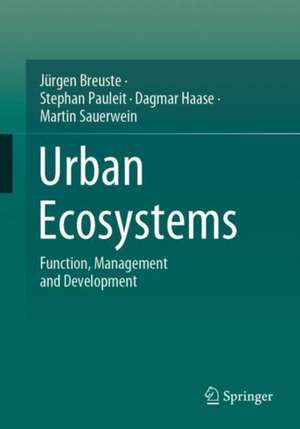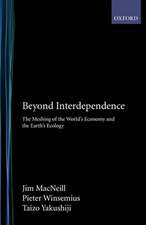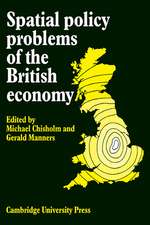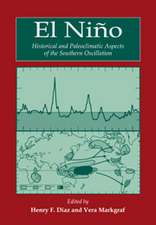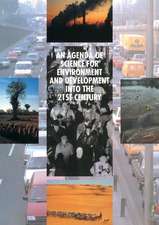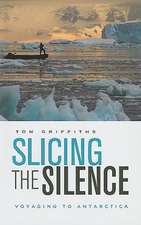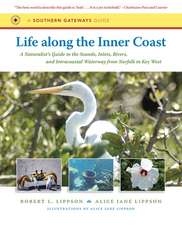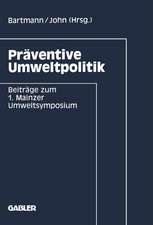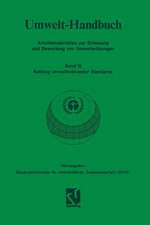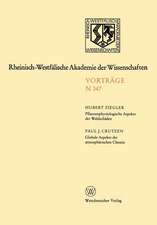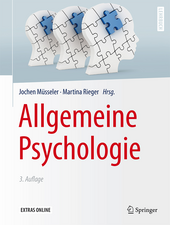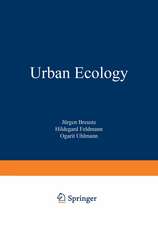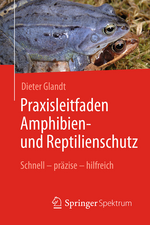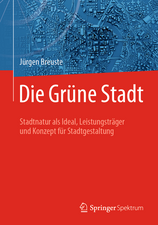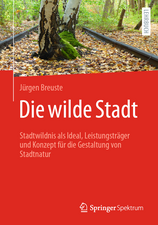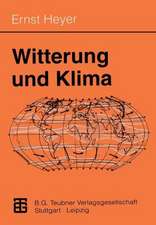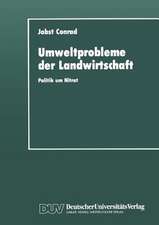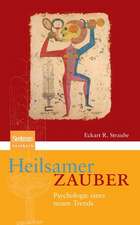Urban Ecosystems: Function, Management and Development
Autor Jürgen Breuste, Stephan Pauleit, Dagmar Haase, Martin Sauerwein Ilustrat de Martin Layen Limba Engleză Paperback – 30 sep 2021
Four renowned urban ecologists have contributed their specific experience in sub-areas without losing sight of the big picture. Jürgen Breuste is an urban ecologist and works at the Paris Lodron University in Salzburg, Austria, on the topics of sustainable urban development, urban biodiversity, ecosystem services and eco-cities. Dagmar Haase is Landschaftsökologin and works at the Humboldt University of Berlin on urban ecosystem services and land use modeling. Stephan Pauleit is a landscape planner and works at the Technical University of Munich on strategies for the sustainable development of urban landscapes. Martin Sauerwein is a geographer and works at the University of Hildesheim on geo-ecology in cultural landscapes, geoarchaeology and soil protection.
The textbook addresses a broad audience of students, teachersand also to practitioners in the fields of ecology, urban ecology, urban development, sustainability, urban geography, nature and landscape conservation, spatial planning, landscape ecology, socialsciences and urban studies. The numerous photos and graphics, many of them in four colors, as well as clear tables illustrate the facts. Case studies, examples and explanations allow a deeper insight. Questions at the end of each chapter allow the progress of knowledge to be checked, and a comprehensive bibliography for each chapter provides further studies.This book is a translation of the original German 1st edition Stadtökosysteme by Jürgen Breuste published by Springer Fachmedien Wiesbaden GmbH, part of Springer Nature in 2016. The translation was done with the help of artificial intelligence (machine translation by the service DeepL.com). A subsequent human revision was done primarily in terms of content, so that the book will read stylistically differently from a conventional translation. Springer Nature works continuously to further the development of tools for the production of books and on the related technologies to support the authors.
This springer essential is a translation of the original German 1st edition essentials,Stadtökosysteme by Jürgen Breuste published by Springer Fachmedien Wiesbaden GmbH, part of Springer Nature in 2016. The translation was done with the help of artificial intelligence (machine translation by the service DeepL.com). A subsequent human revision was done primarily in terms of content, so that the book will read stylistically differently from a conventional translation. Springer Nature works continuously to further the development of tools for the production of books and on the related technologies to support the authors.
Preț: 429.67 lei
Preț vechi: 517.67 lei
-17% Nou
Puncte Express: 645
Preț estimativ în valută:
82.23€ • 89.29$ • 69.07£
82.23€ • 89.29$ • 69.07£
Carte disponibilă
Livrare economică 01-15 aprilie
Livrare express 15-21 martie pentru 40.45 lei
Preluare comenzi: 021 569.72.76
Specificații
ISBN-13: 9783662632789
ISBN-10: 3662632780
Pagini: 327
Ilustrații: XII, 331 p. 133 illus., 122 illus. in color.
Dimensiuni: 168 x 240 x 25 mm
Greutate: 0.72 kg
Ediția:1st ed. 2021
Editura: Springer Berlin, Heidelberg
Colecția Springer
Locul publicării:Berlin, Heidelberg, Germany
ISBN-10: 3662632780
Pagini: 327
Ilustrații: XII, 331 p. 133 illus., 122 illus. in color.
Dimensiuni: 168 x 240 x 25 mm
Greutate: 0.72 kg
Ediția:1st ed. 2021
Editura: Springer Berlin, Heidelberg
Colecția Springer
Locul publicării:Berlin, Heidelberg, Germany
Cuprins
Urbanization and its challenges for ecological urban development - What are the relationships between the spatial urban structure and the ecological properties of the city?- What are urban ecosystems and why are they special?- What are the specifics of the urban environment and how do we deal with urban nature um?.- What do urban ecosystems do for people in the city?.- How vulnerable are urban ecosystems and how can urban resilience be developed with them? - What does the eco-city of tomorrow look like and which paths lead to it?- What is it about in urban ecology and its applications in urban development ?
Notă biografică
Four renowned urban ecologists have brought their specific experience to bear in sub-areas without neglecting the big picture. Jürgen Breuste is an urban ecologist and works at the Paris-Lodron University in Salzburg, Austria, on the topics of sustainable urban development, urban biodiversity, ecosystem services and eco-cities.
Dagmar Haase is a landscape ecologist and works at the Humboldt University in Berlin on urban ecosystem services and issues of land use modeling.
Stephan Pauleit is a landscape planner and works at the Technical University of Munich on strategies for the sustainable development of urban landscapes.
Martin Sauerwein is a geographer and works at the University of Hildesheim on geoecology in cultural landscapes, geoarchaeology and soil protection.
Textul de pe ultima copertă
This textbook answers important questions about the ecological structure, functions and socio-ecological development of cities worldwide. It explains ecological challenges for cities of the 21st century such as resource efficiency, climate change, moderation of quality of life and resilience. The book combines theories of urban development and ecology with practical applications and case studiest worldwide. It shows that cities are by far not only problem areas but also offer great potential for a good life and that the various urban ecosystems can make a considerable contribution to this. The "eco-city" is a real goal that can be pursued step by step in a targeted manner, taking into account the local and regional context.
This book is a translation of the original German 1st edition, Stadtökosysteme by Jürgen Breuste published by Springer Fachmedien Wiesbaden GmbH, part of Springer Nature in 2016. The translation was done with the help of artificial intelligence (machinetranslation by the service DeepL.com). A subsequent human revision was done primarily in terms of content, so that the book will read stylistically differently from a conventional translation. Springer Nature works continuously to further the development of tools for the production of books and on the related technologies to support the authors.
Four renowned urban ecologists have contributed their specific experience. Jürgen Breuste is an urban ecologist in several universities as president of the Society for Urban Ecology (SURE) on the topics of sustainable urban development, urban biodiversity, ecosystem services and eco-cities. Dagmar Haase is a landscape ecologist and works at the Humboldt University of Berlin on urban ecosystem services and land use modeling. Stephan Pauleit is a landscape planner and works at the Technical University of Munich on strategies for the sustainable development of urban landscapes. Martin Sauerwein is a geographer and works at the University of Hildesheim, Germany, on geo-ecology in cultural landscapes, geo-archaeology and soil protection.
The textbook addresses a broad audience of students, teachers and also offers its services to practitioners in the fields of ecology, urban ecology, urban development, sustainability, urban geography, nature and landscape conservation, spatial planning, landscape ecology, and urban studies. Case studies, examples and explanations allow a deeper insight. Questions at the end of each chapter help to check the progress of knowledge, and a comprehensive bibliography are helpful for further studies.
This book is a translation of the original German 1st edition, Stadtökosysteme by Jürgen Breuste published by Springer Fachmedien Wiesbaden GmbH, part of Springer Nature in 2016. The translation was done with the help of artificial intelligence (machinetranslation by the service DeepL.com). A subsequent human revision was done primarily in terms of content, so that the book will read stylistically differently from a conventional translation. Springer Nature works continuously to further the development of tools for the production of books and on the related technologies to support the authors.
Four renowned urban ecologists have contributed their specific experience. Jürgen Breuste is an urban ecologist in several universities as president of the Society for Urban Ecology (SURE) on the topics of sustainable urban development, urban biodiversity, ecosystem services and eco-cities. Dagmar Haase is a landscape ecologist and works at the Humboldt University of Berlin on urban ecosystem services and land use modeling. Stephan Pauleit is a landscape planner and works at the Technical University of Munich on strategies for the sustainable development of urban landscapes. Martin Sauerwein is a geographer and works at the University of Hildesheim, Germany, on geo-ecology in cultural landscapes, geo-archaeology and soil protection.
The textbook addresses a broad audience of students, teachers and also offers its services to practitioners in the fields of ecology, urban ecology, urban development, sustainability, urban geography, nature and landscape conservation, spatial planning, landscape ecology, and urban studies. Case studies, examples and explanations allow a deeper insight. Questions at the end of each chapter help to check the progress of knowledge, and a comprehensive bibliography are helpful for further studies.
Caracteristici
Not a classic book on urban ecology, but a book about the "System City and its Ecology" Info boxes on particularly important, special and current questions, methods, practical cases Exercises with solutions to each chapter Diverse examples from research and practice from German-speaking and European countries as well as from Asia and South America
